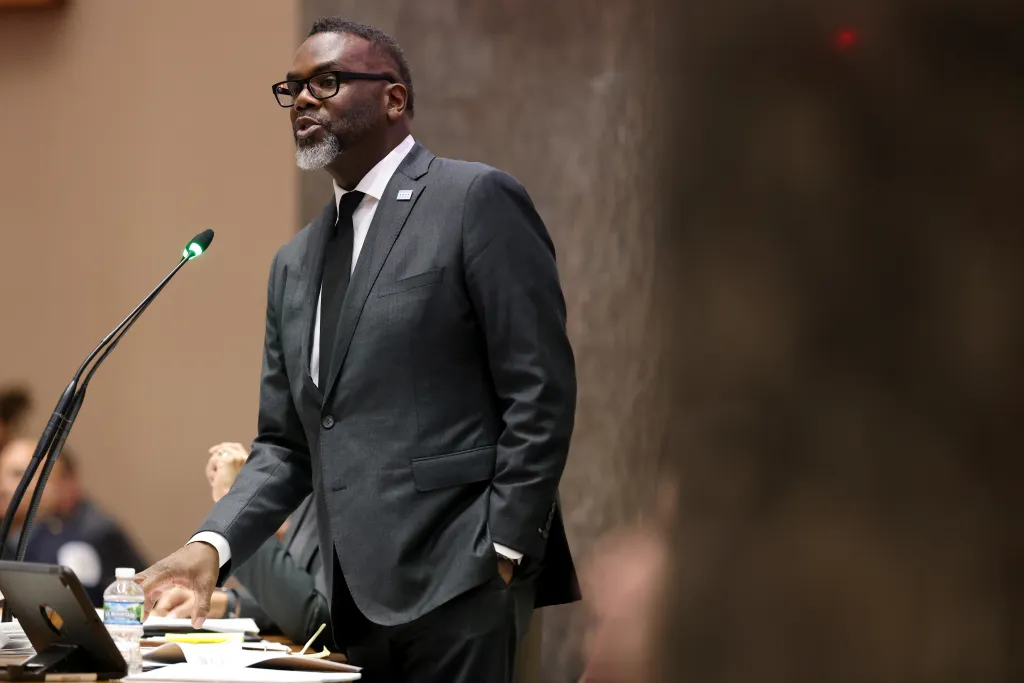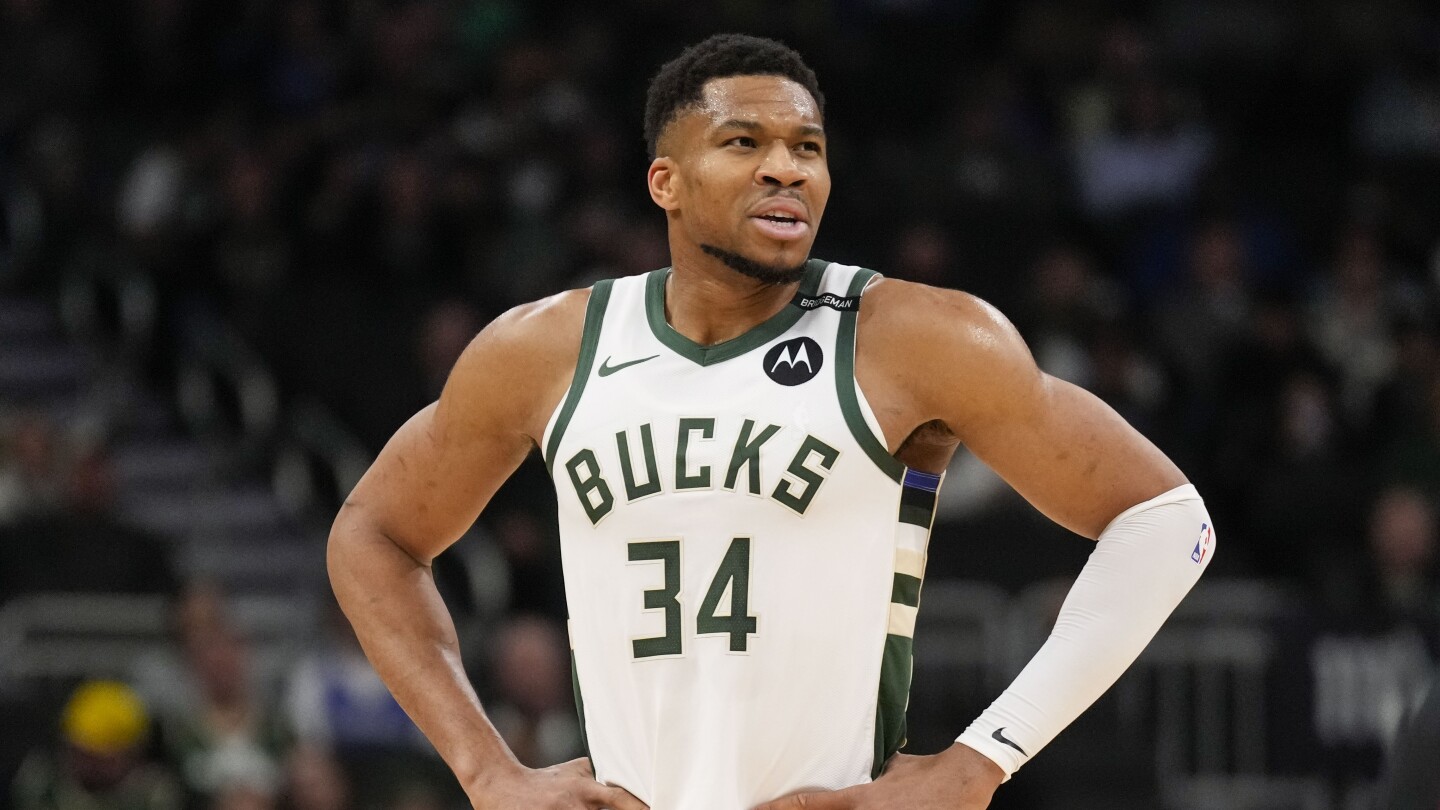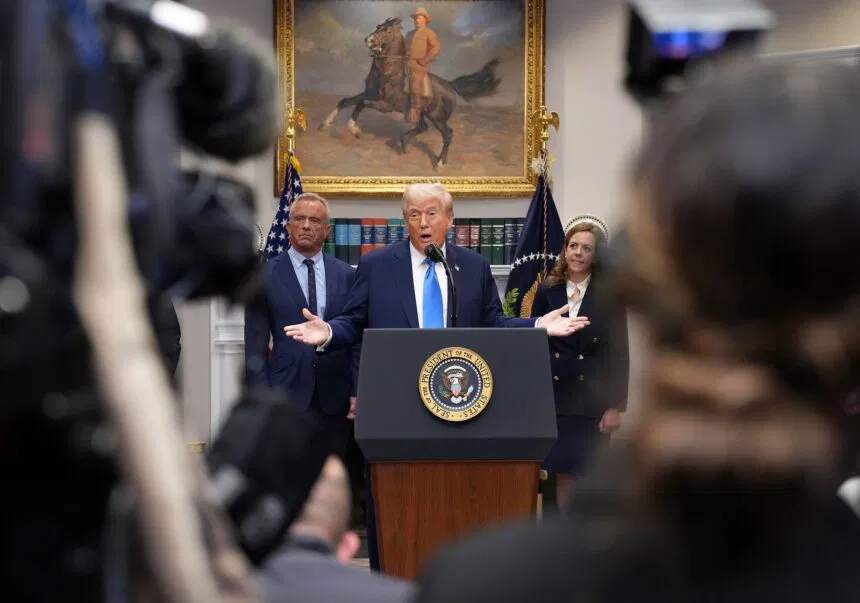
The Chicago Financial Future Task Force, appointed by Mayor Brandon Johnson early this year to give him ideas — and political cover — for closing a projected $1.15 billion budget gap, has issued its first report.
It’s a smorgasbord of ideas, many of them already familiar, that comes just weeks before Johnson’s scheduled Oct. 16 budget address.
The estimable 24 people on the task force have done a great service by listing the ideas and rationale for passage of 89 potential measures to address the yawning hole in Chicago’s budget for 2026. The group led by Loop Capital founder Jim Reynolds and Chicago Urban League President Karen Freeman-Wilson has even done the math on each proposal, in detail, which is a service in itself — since too often we don’t get that level of detail on big policy proposals.
The task force’s projected $1.7 billion in increased revenue alone would be more than enough to fill next year’s projected deficit. And the task force said its cost-saving ideas, if all adopted, could reduce spending by $456 million to boot.
Trouble is, in the real world of Chicago budget making, it would take uncharacteristic political finesse for Johnson to use the ideas in this report to pass a balanced budget through the City Council by the Dec. 31 deadline. If anything, Johnson’s ability to work with council has gotten worse since last year’s protracted battle to pass a $17.1 billion budget, but we can always hope.
The chief reasons for this worrisome outlook fall into three “nots”: About half the task force’s ideas are not big enough to make much difference, some are not politically likely and a third group does not fall within Johnson’s progressive agenda. Add to that Johnson’s lack of dealmaking skills, and it’s evident many of these ideas won’t move far beyond the task force’s printed pages.
A good many of the proposals are not big enough to make a budget-balancing difference. Of the 45 cost-saving and 39 revenue-raising ideas in the report, 51 would raise no more than $20 million each. Twelve have no cost or savings estimate at all, and four actually show a negative return but could be used to facilitate other beneficial actions.
A penny saved is indeed a penny earned. But it would take 115 billion pennies to erase the big budget gap. Go ahead, pass the nickel-and-dime fixes, but Johnson and the City Council should save the budgeteers’ time and effort, and their own political capital, and train their focus on the big stuff.
The second “not” is the group of strong potential fixes that seem unlikely because Johnson would need the state of Illinois to help deliver them.
Sure, the Chicago Police Department might get $400,000 for autonomous drones or the legislature might pass a new tax on amusement-ticket resellers that would yield $38 million for Chicago, and a new 911 surcharge could yield $13 million for the city if it passes. But the major proposed measures — $305 million from a new sales tax on services and a $250 million boost from the state’s local government distributive fund — seem like nonstarters. Gov. JB Pritkzer is on record against “broad-based” tax increases such as the proposed services tax, and a major boost in Chicago’s take from the state’s income tax revenues seems unlikely, given the idea has been floated, and rejected, in the past.
On top of it all, Johnson has a historically bad track record in getting help from Springfield, so a big turnabout would be needed to get much help from the state.
This brings us to the most important category of likely “nots” — the ideas Chicago’s mayor could propose, yet so far seems reluctant to pursue. The ideas clash with Johnson’s progressive agenda, and given his unpopularity as opponents are angling to run against him in 2027, he has little room for political compromise.
Increases in the garbage collection fee could raise $300 million a year, and tying property taxes to inflation could bring in an extra $56 million. But progressives in the City Council view the garbage collection hike as unfairly regressive, and Johnson would have a hard time overcoming their opposition even if he gave this idea another try.
As for the inflation accelerator on property taxes — an option available to Chicago mayors since 2015 — Johnson has never deployed the inflation adjustment. Besides, the 50-0 City Council vote against his proposed $300 million property tax hike last year was so devastating that Johnson already has said he won’t seek an increase this year.
The task force has said the city could find $103 million in savings from cuts to employee benefits, but it would be a surprise to see this union-friendly mayor go after those. And Johnson has shown little stomach for staffing cuts, even though many jobs created with temporary federal COVID-19 money have now become part of the city’s permanent staffing.
Where Johnson does act, he’ll need to make certain the savings are real. For example: The task force estimates up to $162 million in savings from a freeze on filling open positions, yet if Johnson pursues that option, the projected $70 million in savings on overtime pay may not materialize. After all, overtime pay rises when positions go unfilled.
It’s said that budgets are moral documents: They tell us what we value, and what we don’t. That may be true, but Chicago budgets are political documents first.
Johnson created the task force to give himself political cover for the tough decisions he will need to make in order to present a balanced budget. It’s likely that tactic will have some success. And while the group’s work so far is not revelatory — most of the options are familiar already — their work in assessing the costs and benefits of virtually every conceivable budget remedy could be beneficial in budget negotiations with the City Council.
Now it’s up to Johnson, along with the City Council, to calculate the political costs and benefits of the choices, and address next year’s structural budget gap by selecting from among the task force’s options — or finding new ones of their own — and putting the pieces in place in a way that could strengthen Chicago’s fiscal state over time.
Johnson’s political future, and the city’s fiscal health, both weigh in the balance as he considers which ideas just might work.
David Greising is president of the Better Government Association.



